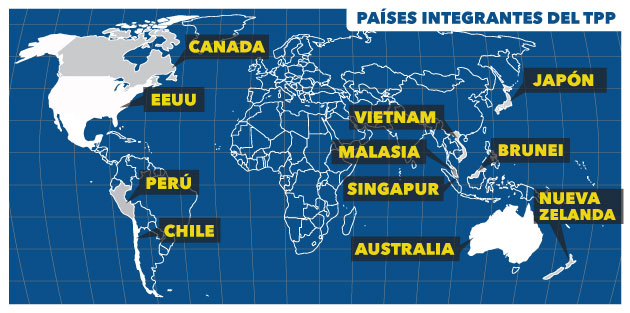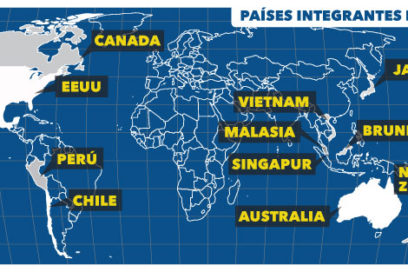 The last round of negotiations for the foundation of the Transpacific Partnership Agreement (TPP) was held in Singapore in May and left no few issues unresolved. This meeting, anteceded by the sessions held days before with heads of delegations in Viet Nam, was not exempted of doubts and interrogations. Top level experts also participated and discussed matters related to the trade of merchandise, rights of intellectual property, state enterprises and finance services.
The last round of negotiations for the foundation of the Transpacific Partnership Agreement (TPP) was held in Singapore in May and left no few issues unresolved. This meeting, anteceded by the sessions held days before with heads of delegations in Viet Nam, was not exempted of doubts and interrogations. Top level experts also participated and discussed matters related to the trade of merchandise, rights of intellectual property, state enterprises and finance services.
According to observers the efforts of the last meeting have been an attempt to solve the obstacles coming from the differences between Tokyo and Washington, the greatest economies of the group.
Australia, Brunei, Canada, Chile, United States (U.S.), Japan, Malaysia, Mexico, New Zealand, Peru, Singapore and Viet Nam will meet on July to continue with the bilateral debates in pursue to try to “solve the current problems” between economies at different developing levels.
Ministerial declaration from Singapore says the negotiations will go on with the hope to “create employment and opportunities for the inhabitants of the member countries, as well as economic development.
China, economic power which is not a member of this group, has an open behavior to the proposal of the Trans Atlantic Association Agreement, but argues that “this should help a global trade development and a promotion of an equal commerce atmosphere”, as the Chinese PM Li Keqiang said in the Annual Conference 2014 of the Boao Forum for Asia.
As a coincidence, also in May, the US and the European Union (UE) started in Washington a new round of negotiations aimed to the foundation of the Trans Atlantic and Trade Investment Partnership (TTIP) that, if becoming reality, will cover the 50 percent of the global economic activity. Nevertheless, this free trade treaty that should be penned the next year; goes slow for the disagreements between the parts.
The two inter-ocean agreements promoted by the US and undoubtedly targeting its worldwide hegemony are secretly negotiated, and behind public opinion and they have dispositions that remake the current trade system while changing bilateral relations between the States, changing them in macro agreements between economic zones.
Despite the limited range of the available materials, chapters filtrated by Wikileaks makes us deduce the content and its future influence to increase the level of power of the great companies and capitals above the national governments.
According to the Trans Atlantic agreement, investors can make their cooperative rights prevail and take to private court arbitration norms passed in Parliament of those member nations, if they consider them detrimental for their economic interests.
Likewise, among other regulations, it permits the use of restrictions of fracking (gas and oil extraction), and contamination products, like bituminous sands. It also considers the exoneration to corporations with responsibility in environment accidents like in the case of the transportation of the hydrocarbons, making them rest on the contractor responsible for the transportation.
Both agreements have been rejected by US congressmen and parliamentarians from other countries. In the case of the TTIP, there are opponents from European organizations, ecologist and union movements who denounce the project as an attack to the human rights and democracy.
These treaties are top priority for the Washington, committed to keep their economic supremacy and stop the development of Russia and China. If it becomes reality, they will open the doors to private enterprise interests that will prevail above the rights of the States.


